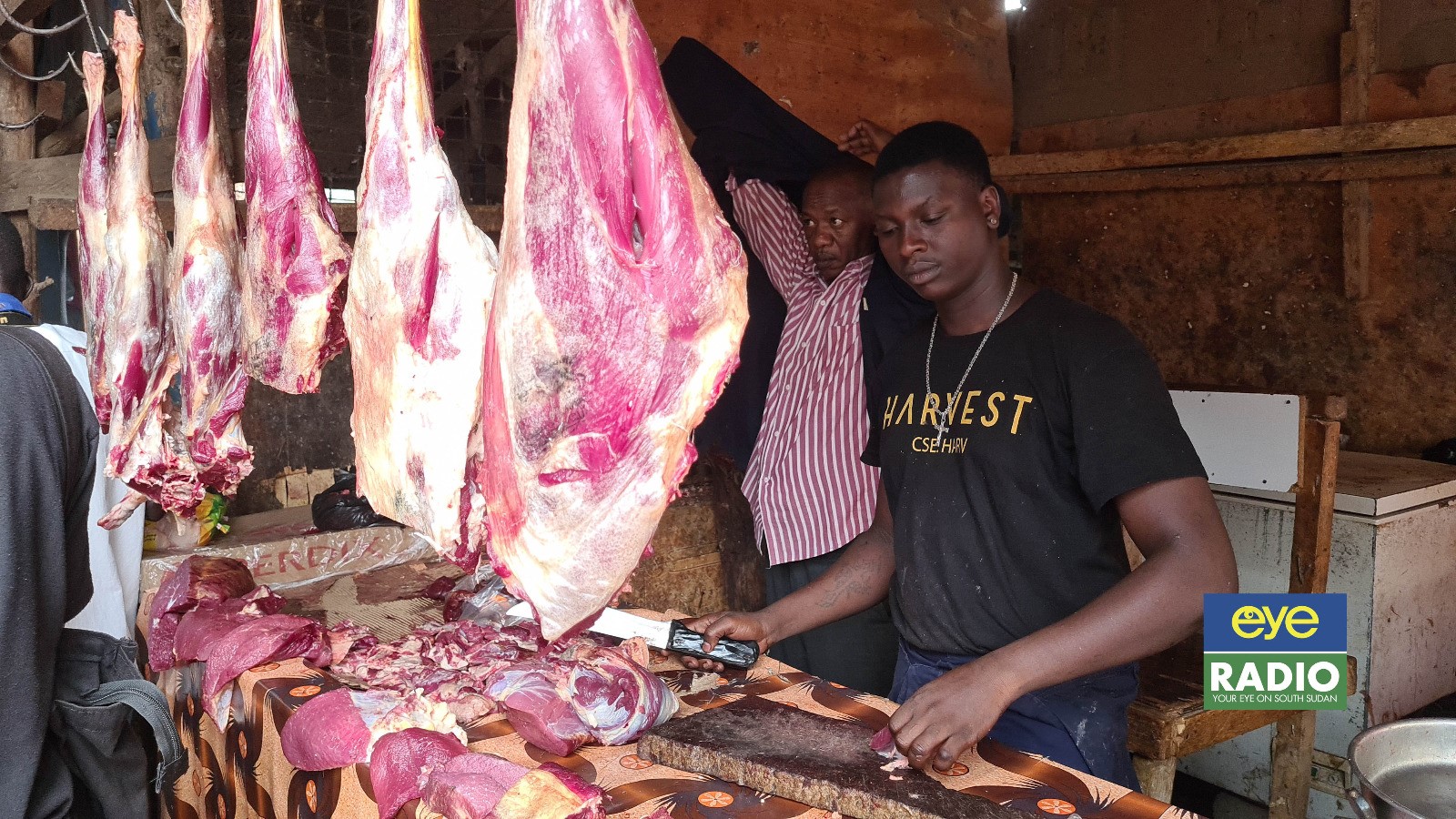By Koang Chang
Copyright eyeradio

A butcher selling meat at Jebel market in Juba on Friday, March 1st 2024. Photo Credit: Charles Wote | Eye Radio
– Butchers in Juba have criticized a new Butchers Union policy, claiming it is responsible for rising meat prices and a significant drop in their income.
Some butchers who spoke to Eye Radio on Tuesday, September 9, say the union has restricted them to working only ten days a month.
Butchers at Kubri Haboba Market in Gudele 2 are raising concerns over a shift system implemented by the Butchers Union, which they claim is affecting their income and contributing to rising meat prices.
The traders say the new system restricts them to working only ten days a month. This, they say, makes it difficult to pay for rent, taxes, and meet their daily needs.
One of the butchers, Emmanuel John, said the restricted working days have forced him to reduce the number of cows he slaughters each month, from 30 to just ten. This has led to a drop in business and higher prices for consumers.
“The problem is from the Butchers Union. We rent shops in the market as meat butchers, but they have restricted us to working in shifts,” he said.
“For the rest of the month, I am out of work for 20 days. The union said that they are trying to organize the market and work in the butchery through this step.”
According to Emmanuel, the union requires butchers to pay 200,000 South Sudanese pounds to work every day. He says this rule is hurting about 50 butchers in the market.
“I am now renting a shop for more than 2 million South Sudanese pounds per month. I cannot pay the rent by working only ten days,” Emmanuel added.
Other butchers, including Mohamed Ibrahim, Arkangelo Mading, and Sabit Mohamed, echoed the same concerns.
“The problem we face here is working in shifts. Currently, I have to pay the rent for the shop, and the Butchers’ Union asks me to work only ten days a month and pay the full rent. Then the Revenue Authority comes and demands that I pay taxes for a full month,” Mohamed Ibrahim said.
Arkangelo Mading explained, “We work one day and stop two days, and we have obligations in terms of rent and taxes. We are about 15 butchers in the market here, and we are forced to pay the full rent for the shop, while we only work 10 days a month.”
Sabit Mohamed said the new policy has also reduced the number of animals they can slaughter. “We used to slaughter 30 cows a month, but now we slaughter only 10 a month because of the shift work. We appeal to the relevant authorities to allow us to conduct daily slaughtering to cover our expenses.”
The butchers say the shift system is increasing the price of meat, with a kilo of lamb now selling for 46,000 SSP and beef for 34,000 SSP, making it unaffordable for many consumers.
Attempts by Eye Radio to reach the Butchers Union for a comment were unsuccessful.



